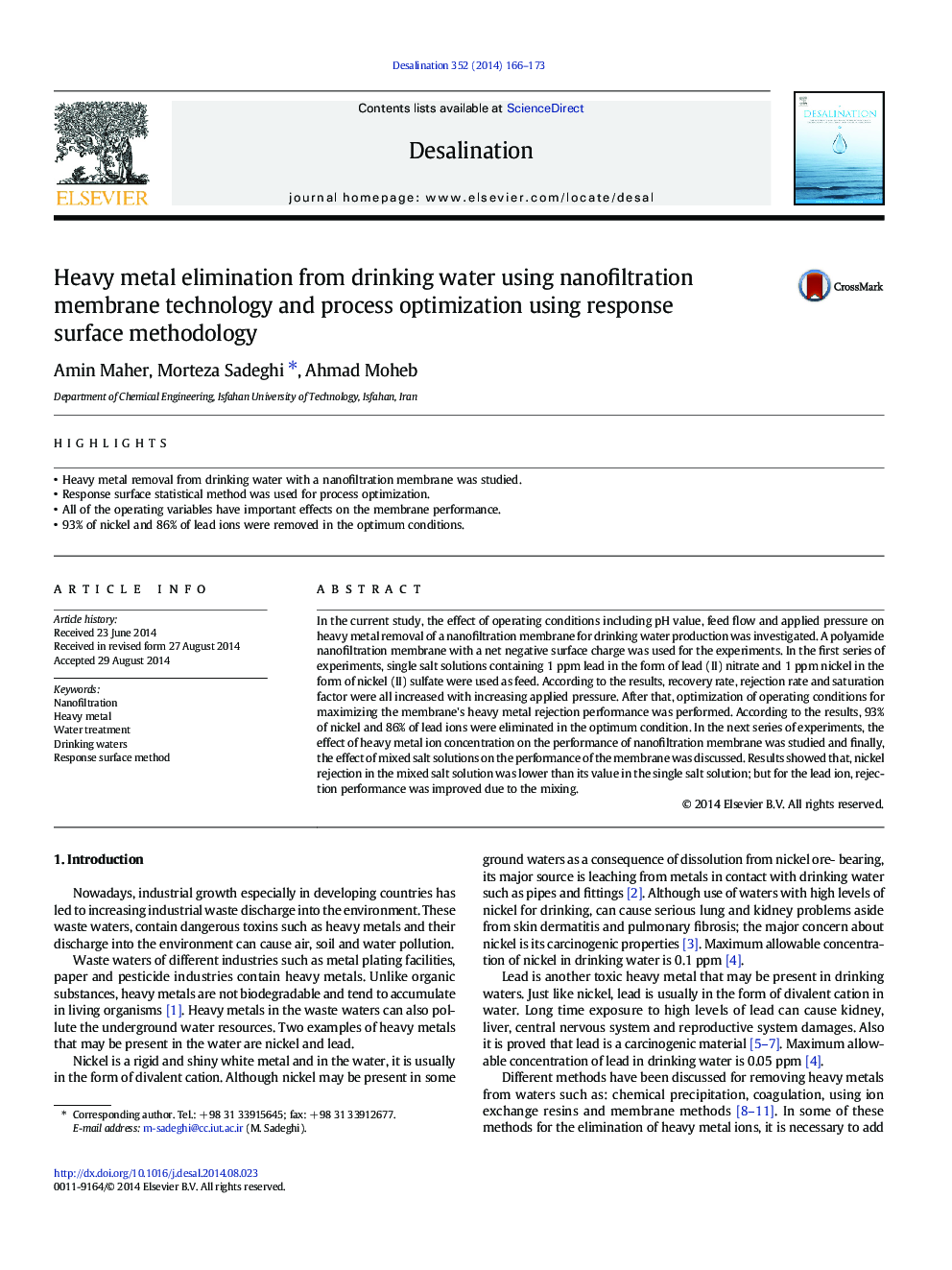| Article ID | Journal | Published Year | Pages | File Type |
|---|---|---|---|---|
| 623421 | Desalination | 2014 | 8 Pages |
Abstract
In the current study, the effect of operating conditions including pH value, feed flow and applied pressure on heavy metal removal of a nanofiltration membrane for drinking water production was investigated. A polyamide nanofiltration membrane with a net negative surface charge was used for the experiments. In the first series of experiments, single salt solutions containing 1Â ppm lead in the form of lead (II) nitrate and 1Â ppm nickel in the form of nickel (II) sulfate were used as feed. According to the results, recovery rate, rejection rate and saturation factor were all increased with increasing applied pressure. After that, optimization of operating conditions for maximizing the membrane's heavy metal rejection performance was performed. According to the results, 93% of nickel and 86% of lead ions were eliminated in the optimum condition. In the next series of experiments, the effect of heavy metal ion concentration on the performance of nanofiltration membrane was studied and finally, the effect of mixed salt solutions on the performance of the membrane was discussed. Results showed that, nickel rejection in the mixed salt solution was lower than its value in the single salt solution; but for the lead ion, rejection performance was improved due to the mixing.
Related Topics
Physical Sciences and Engineering
Chemical Engineering
Filtration and Separation
Authors
Amin Maher, Morteza Sadeghi, Ahmad Moheb,
